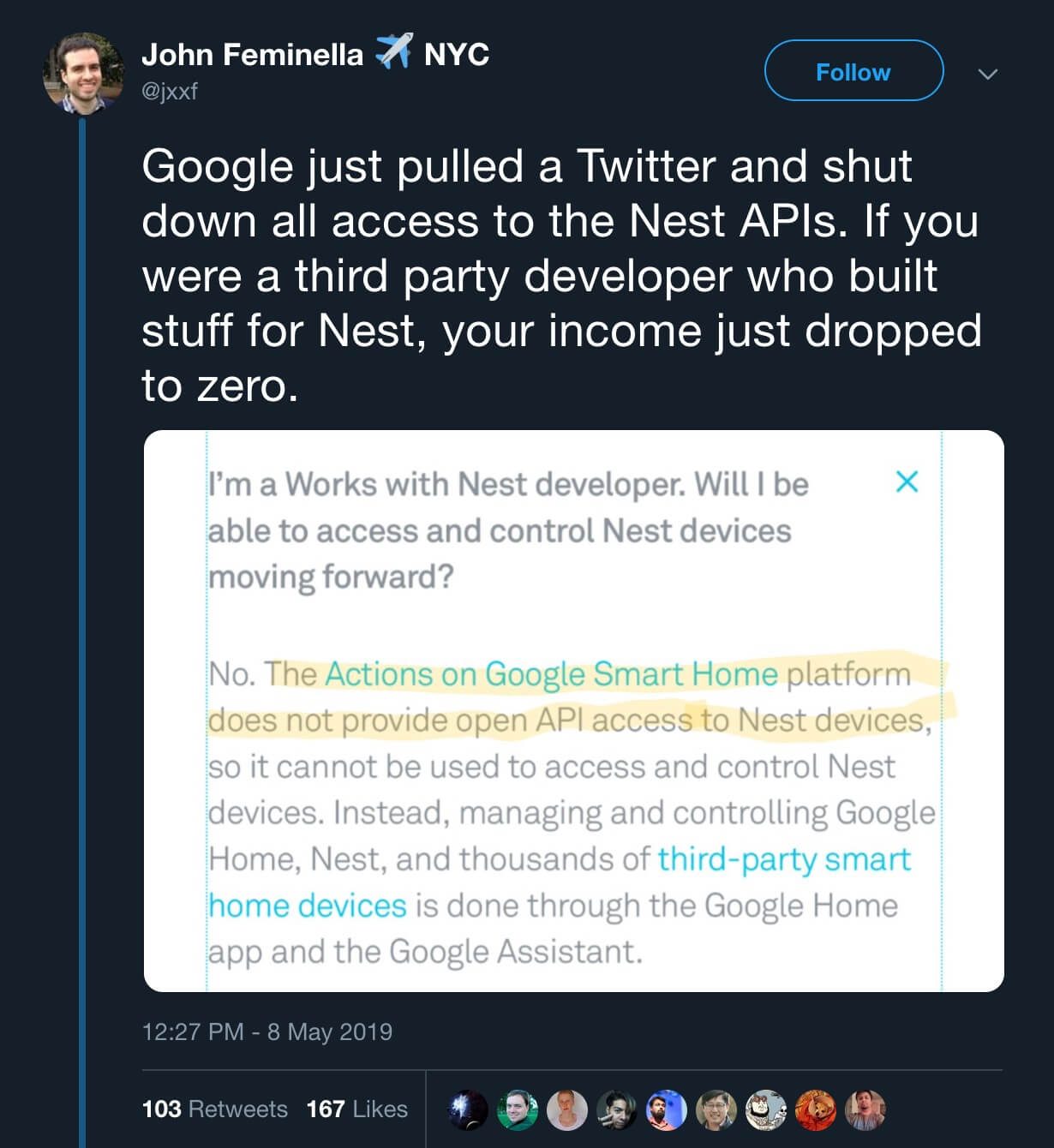The question of why anyone would really want to use a thing such as Nest – the Google-owned home automation devices and software running on them -remains a valid one – given the inherent security and privacy risks of the internet of things (IoT) devices deployed in one’s home.
And now the business model around them is also being brought into question for third-party developers, facing the fickle and unreliable policies of Nest’s behemoth owner.
Add to that the pretty much by now also inherent unreliability of continued existence of Google’s products, services, and features – that seem to spring to life, gain popularity and customers, only to then get shut down arbitrarily, and alarmingly quickly. Just think of that fan favorite, Google Reader, fallen in the war against RSS. Or, by now, a myriad of messaging apps the tech giant has produced, only to do away with on what seems a whim.
Nevertheless, Nest devices – whose main, but not only claim to fame is regulating a user’s thermostat, so they don’t have to – continue to be installed in hundreds of millions of homes. The company was acquired by Google in 2014 for 3.4 billion dollars – and now Google is moving to tie Nest with the Google Home products into one neat bow, under the brand name Google Nest.
The move, announced this week during the Google IO developer conference, has had the unfortunate effect of breaking third party integration into the service, i.e. cutting off Nest API developers without prior warning.
The purpose given by the company are buzzwords such as more privacy and security – but it will also break functionality built into the system rather unceremoniously – as Google is wont to do.
Among the those affected is the IFTTT – a widely-used web-based software whose purpose is to create “applets” that enable devices made by different manufacturers to work together seamlessly.

Other than potentially leaving customers in the cold with this abrupt policy change, the decision is likely to leave developers focused on Nest products deprived of much of their revenue, too, as John Feminella noted in a post on Twiter.













